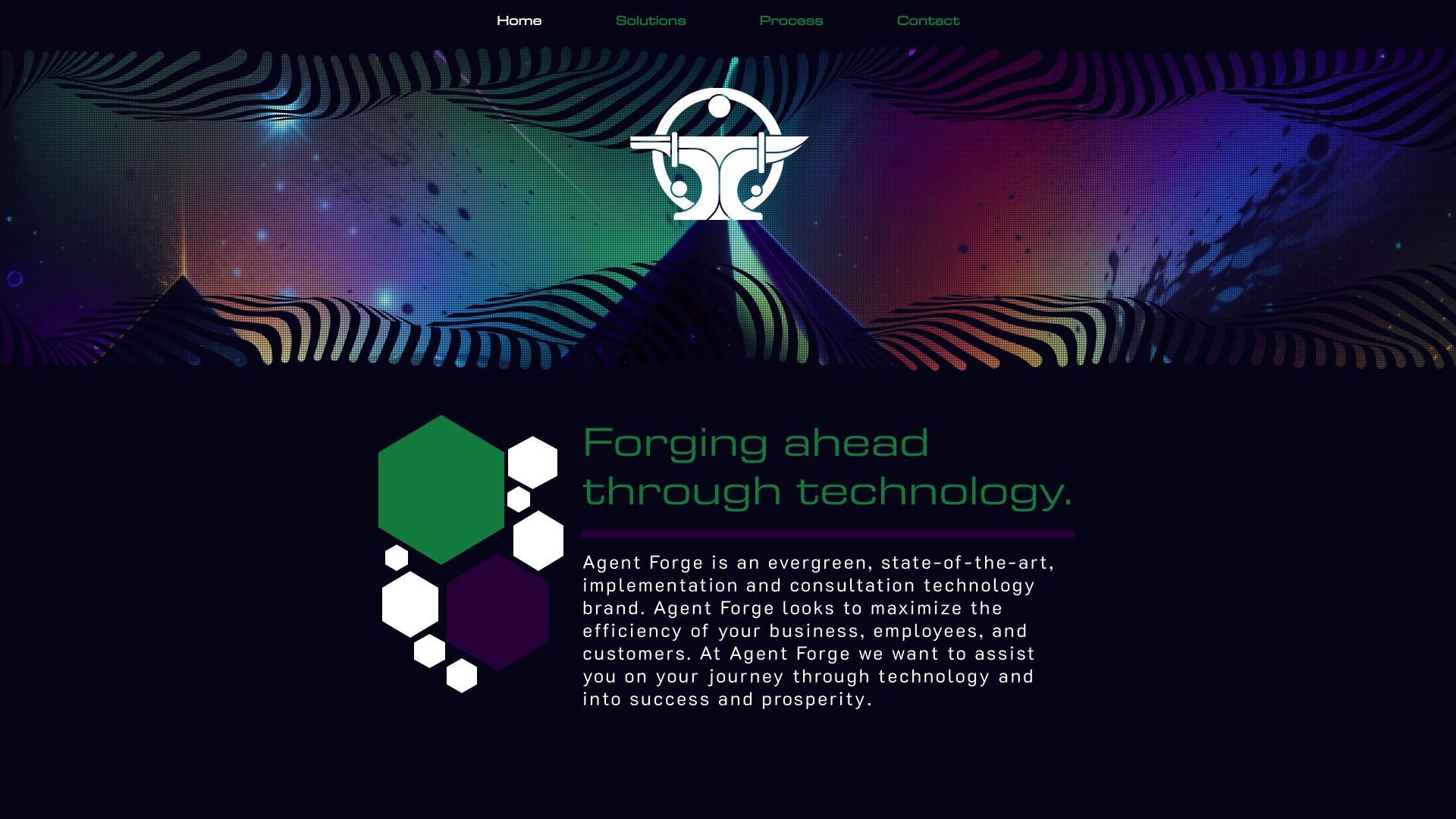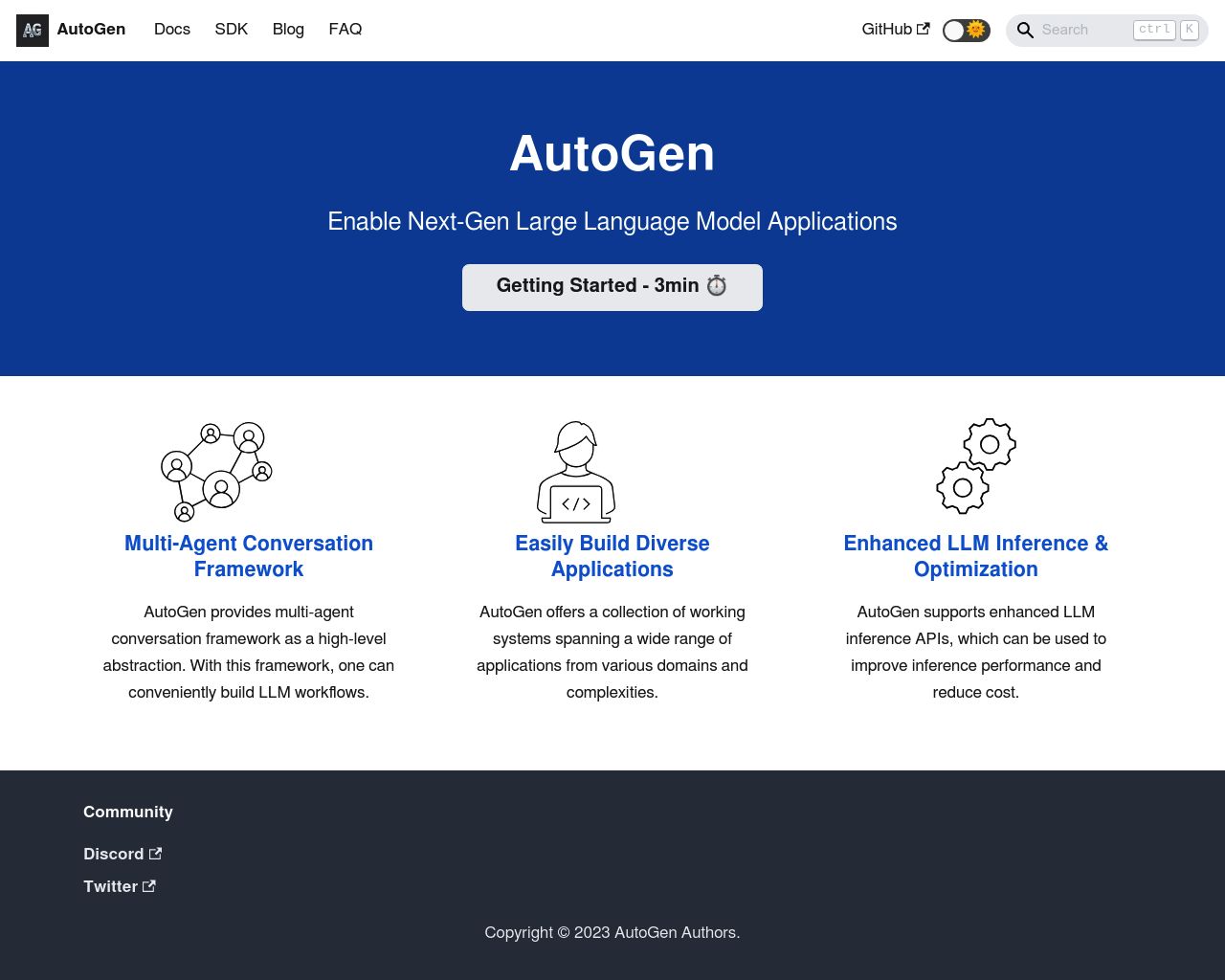AI agent development platforms are reshaping the landscape of software engineering and business automation. As organizations seek powerful tools to harness the potential of artificial intelligence, two notable contenders have emerged: Agent Forge vs. AutoGen. This comparison delves into the features, strengths, and limitations of these open-source frameworks, exploring their approaches to AI agent development, deployment options, and security measures.
We’ll also introduce SmythOS, a comprehensive alternative that addresses many of the challenges faced by developers and businesses in implementing AI solutions. Whether you’re a seasoned developer, a business leader, or an AI enthusiast, this analysis will help you navigate the complex world of AI agent platforms and make informed decisions for your projects and organization.
Agent Forge Overview
Agent Forge is an open-source Python framework designed for building AI-powered autonomous agents and cognitive architectures. It provides developers with tools and structures to rapidly develop, test, and iterate on agents that can automate tasks and workflows.


The framework supports major Large Language Models (LLMs) like Claude, GPT, and self-hosted models via Oobabooga. It offers flexible agent memory management using ChromaDB and allows for the orchestration of multi-agent scripts and complex workflows. Agent Forge includes pre-built agent templates to accelerate development and a prompt engineering system to guide agent behavior.
One of the key strengths of Agent Forge is its modular and extensible nature, making it well-suited as a foundation for long-term AI projects.
Agent Forge is particularly useful for prototyping AI assistants, chatbots, and expert systems. It can be applied to task automation, enhancing productivity, building conversational interfaces, automating business workflows, and developing intelligent process automation bots. The framework’s flexibility allows it to cater to a wide range of use cases across various industries.
While Agent Forge offers powerful capabilities for AI development, it’s important to note that it’s described as a low-code framework, implying that some coding knowledge is necessary. This may present a learning curve for users without programming experience. Additionally, the framework currently lacks certain features like a visual builder, no-code editor, and specific tools for explainability and transparency of AI models.
AutoGen Overview
AutoGen is an open-source framework designed for developing Large Language Model (LLM) applications using multi-agent conversations. It enables the creation of customizable and conversable agents that can interact with each other, LLMs, tools, and humans to solve various tasks.


AutoGen’s core feature is its ability to facilitate conversations between multiple agents. These agents can collectively perform tasks autonomously or with human feedback, making it highly adaptable for different use cases. The framework maximizes the performance of LLMs like ChatGPT and GPT-4 by offering enhanced inference capabilities, including tuning, caching, error handling, and templating.
AutoGen includes useful debugging tools and logging functionalities for API calls, which are essential for diagnosing and optimizing LLM-based systems.
Developers can tailor agents according to specific task needs, integrating LLMs, human inputs, and various tools. AutoGen supports both fully autonomous agent operations and human-in-the-loop problem-solving, providing flexibility for applications where human input is essential. The framework has demonstrated effectiveness in a wide range of applications, from automated task solving and code generation to continual learning and complex problem-solving in group chats.
AutoGen includes useful debugging tools and logging functionalities for API calls, which are essential for diagnosing and optimizing LLM-based systems. It also features EcoOptiGen, a cost-effective technique for tuning large language models, highlighting its focus on enhancing the efficiency and effectiveness of LLMs. While AutoGen offers powerful capabilities for AI development, it lacks some features like a visual builder or no-code editor, which may limit its accessibility for non-technical users.
Feature Comparison
Agent Forge and AutoGen offer distinct approaches to AI agent development, with some notable differences in their core components and security features. Agent Forge provides a flexible framework for building autonomous agents using various Large Language Models (LLMs), including support for self-hosted models via Oobabooga. It offers customizable agent memory management through ChromaDB and allows for multi-agent script orchestration. However, Agent Forge lacks certain features like a visual builder and no-code editor, which may limit its accessibility for non-technical users.
AutoGen, on the other hand, focuses on facilitating multi-agent conversations and enhancing LLM performance through features like tuning, caching, and error handling. It supports both autonomous operations and human-in-the-loop problem-solving, making it adaptable for various use cases. AutoGen includes useful debugging tools and logging functionalities, which are essential for optimizing LLM-based systems. However, like Agent Forge, it also lacks a visual builder or no-code editor.
This gap in security features could be a concern for users dealing with sensitive data or requiring stringent security protocols.
In terms of security, both platforms have limited features explicitly mentioned. While AutoGen offers debugging tools that could potentially aid in identifying security issues, neither platform specifically highlights robust security measures like data encryption or IP control. This gap in security features could be a concern for users dealing with sensitive data or requiring stringent security protocols.
| Agent Forge | AutoGen | SmythOS | |
|---|---|---|---|
| CORE FEATURES | |||
| Hosted Agents (Dev, Production) | ✅ | ❌ | ✅ |
| Environments (Dev, Production) | ✅ | ❌ | ✅ |
| Visual Builder | ❌ | ❌ | ✅ |
| No-Code Options | ❌ | ❌ | ✅ |
| Explainability & Transparency | ❌ | ❌ | ✅ |
| Debug Tools | ❌ | ✅ | ✅ |
| Multimodal | ❌ | ✅ | ✅ |
| Audit Logs for Analytics | ❌ | ✅ | ✅ |
| Work as Team | ❌ | ❌ | ✅ |
| Bulk Work | ❌ | ✅ | ✅ |
| Agent Work Scheduler | ❌ | ✅ | ✅ |
| Logs & Monitoring | ❌ | ✅ | ✅ |
| SECURITY | |||
| Constrained Alignment | ❌ | ❌ | ✅ |
| Data Encryption | ❌ | ❌ | ✅ |
| OAuth | ❌ | ❌ | ✅ |
| IP Control | ❌ | ❌ | ✅ |
| COMPONENTS | |||
| Foundation AIs | ❌ | ✅ | ✅ |
| Huggingface AIs | ❌ | ❌ | ✅ |
| Zapier APIs | ❌ | ❌ | ✅ |
| All other APIs, RPA | ❌ | ❌ | ✅ |
| Classifiers | ❌ | ❌ | ✅ |
| Logic | ❌ | ✅ | ✅ |
| Data Lakes | ❌ | ❌ | ✅ |
| DEPLOYMENT OPTIONS (EMBODIMENTS) | |||
| Deploy as API | ❌ | ❌ | ✅ |
| Deploy as Webhook | ❌ | ❌ | ✅ |
| Staging Domains | ❌ | ❌ | ✅ |
| Production Domains | ❌ | ❌ | ✅ |
| API Authentication (OAuth + Key) | ❌ | ❌ | ✅ |
| Deploy as Site Chat | ❌ | ❌ | ✅ |
| Deploy as Scheduled Agent | ❌ | ❌ | ✅ |
| Deploy as GPT | ❌ | ❌ | ✅ |
| Scalability | ❌ | ❌ | ✅ |
| DATA LAKE SUPPORT | |||
| Hosted Vector Database | ❌ | ❌ | ✅ |
| Sitemap Crawler | ❌ | ❌ | ✅ |
| YouTube Transcript Crawler | ❌ | ❌ | ✅ |
| URL Crawler | ❌ | ❌ | ✅ |
| PDF Support | ✅ | ❌ | ✅ |
| Word File Support | ❌ | ❌ | ✅ |
| TXT File Support | ✅ | ❌ | ✅ |
Best Alternative to Agent Forge and AutoGen
While Agent Forge and AutoGen offer innovative approaches to AI agent development, SmythOS emerges as the superior alternative, providing a comprehensive and user-friendly platform for creating and deploying AI agents. SmythOS stands out with its intuitive visual builder and no-code options, making it accessible to users of all skill levels. This ease of use doesn’t come at the expense of powerful features – SmythOS offers a rich set of capabilities that surpass both Agent Forge and AutoGen.
SmythOS excels in its extensive feature set, addressing many of the limitations found in Agent Forge and AutoGen.
SmythOS excels in its extensive feature set, addressing many of the limitations found in Agent Forge and AutoGen. Unlike these platforms, SmythOS provides robust security features including data encryption, OAuth, and IP control. It also offers a wider range of deployment options, allowing users to deploy agents as APIs, webhooks, site chats, and even as GPTs. The platform’s support for various AI models, including Hugging Face AIs, and its integration capabilities with Zapier and other APIs, provide users with unparalleled flexibility and power.
Perhaps most significantly, SmythOS offers scalability and production-ready environments that are crucial for businesses looking to implement AI solutions at scale. Its data lake support, including a hosted vector database and support for various file types, enables more comprehensive data handling than either Agent Forge or AutoGen. These features, combined with SmythOS’s commitment to explainability, transparency, and ethical AI practices, make it an ideal choice for organizations seeking a reliable, powerful, and future-proof AI agent development platform.
Conclusion
Agent Forge and AutoGen offer compelling frameworks for AI agent development, each with unique strengths. Agent Forge provides a flexible Python-based platform for building autonomous agents, supporting various LLMs and offering customizable memory management. AutoGen excels in facilitating multi-agent conversations and enhancing LLM performance through advanced features like tuning and caching.
However, SmythOS emerges as the superior choice, addressing the limitations of both platforms while offering a more comprehensive and user-friendly solution. Our visual builder and no-code options make AI agent development accessible to users of all skill levels, without compromising on advanced capabilities. We provide robust security features, including data encryption and OAuth, which are critical for enterprise-level deployments.
Unlike Agent Forge and AutoGen, SmythOS offers a wide range of deployment options, allowing you to implement AI solutions as APIs, webhooks, site chats, and even GPTs. Our support for various AI models, including Hugging Face AIs, and extensive integration capabilities with Zapier and other APIs, provide unparalleled flexibility. Additionally, our commitment to scalability, production-ready environments, and comprehensive data handling through data lake support sets us apart in the AI agent development landscape.
If you’re looking for a powerful, secure, and user-friendly platform to develop and deploy AI agents at scale, create a free SmythOS account today. Experience the future of AI agent development with our intuitive interface, robust features, and unmatched flexibility. Don’t just build agents – empower your organization with SmythOS.